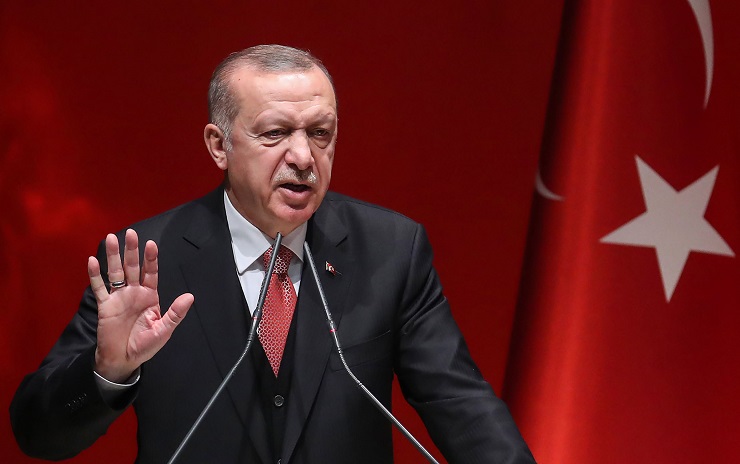With Turkey’s direct involvement in the Afghan peace process increasing in an unprecedented way, the latter is likely to be swamped by an era of sharp geo-political tussle in the months and years to come. Given that Turkey has historically good relations with Afghanistan, the Pentagon and the CIA, with both of them being ardent opponents of US withdrawal by May 1, aim to use Turkish leverage amongst the Afghans, including the Taliban, to allow for a settlement that would allow the US to leave its military forces beyond the May 1 deadline. For Turkey, on the other hand, a collaboration with the US in Afghanistan could not only help it revive its ties with the West and regain access to critical military modernisation projects, especially NATO’s F-35 programme, but also enable it to pursue its own ‘neo-Ottoman’ agenda further into Central Asia. For Turkey, therefore, its direct role in Afghanistan will further the agenda it is already pursing through its involvement in and support for Azerbaijan in the Nagorno-Karabakh conflict.
With Turkish Brigadier assuming command of NATO in Afghanistan, there remains no gainsaying that Turkey’s role is increasing in Afghanistan at a time when both Russia and China are looking forward to integrating Afghanistan into the Belt & Road Initiative (BRI) and the Eurasian Economic Union (EEU) speaks volumes about how the US aims to use Turkish influence over Afghanistan to wean Afghanistan/Taliban away from a strong alliance with the US rival states.
At the same time, Turkey’s strong tendency to instrumentalise jihadi militias and its blatant use of armed-militant groups in Syria and Nagorno-Karabakh makes it a perfectly suited candidate for the US in Afghanistan. As it stands, in the wake of a significantly reduced military presence in Afghanistan, the US can appropriate Turkish expertise to deploy these militias in Afghanistan to not only keep Afghanistan as an extended US/NATO outpost in the region, but also be able to spread these forces into the Caucasus and Xinjiang to destabilise both Russia’s ‘underbelly’ and China’s BRI.
Xinjiang, as it stands, is a major logistical point for China’s BRI projects. It connects China with Central Asia, West Asia, leading eventually to the European markets. Of the six planned BRI economic corridors, at least three of them pass through Xinjiang, including the China–Pakistan Economic Corridor (CPEC) linking Kashgar in Xinjiang to the Port Gwadar in Pakistan.
As such, as Chinese officials believe, if the US has been using its military and intelligence presence in Afghanistan to create trouble in Xinjiang to destabilise the BRI, it will need to continue to do the same if it ends up withdrawing its forces from Afghanistan. The CIA and the Pentagon appear to believe that Turkey’s extended and enhanced presence in Afghanistan and its ‘jihadi resources’ could play that role pretty effectively.
Indeed, the US agenda stands great chances of success because of Turkey’s strong diplomatic support for China’s Uyghur Muslims. It is significant to note that the US and Turkey have similar narratives with respect to the alleged “genocide” China is carrying out in Xinjiang. As such, a readily available narrative for inserting jihadi elements into Xinjiang through Afghanistan is available for Turkey. Even a limited US military presence in Afghanistan would be sufficient to cover and facilitate this project.
Indeed, when China’s foreign minister visited Turkey recently, the later welcomed him with a 1,000 people strong protest in Istanbul, chanting slogans like “Dictator China” and “Stop Uighur genocide, close the camps”.
Daily Sabah, a pro-Government Turkish daily, recently published reports that portray China as a fascist regime and linked the future of Turkey’s relations with China with the “well-being of the Uyghur Muslims.”
This narrative is in line with Turkey’s ‘neo-Ottoman’ ambitions that put it at the centre of the Turkic world stretching from the Black Sea to the steppes of Central Asia and Xinjiang. It is the same ‘Neo-Ottoman’ ambitions that previously led it to deploy its regular and jihadi forces in Libya as well.
Besides it, Turkey’s involvement in Afghanistan could help the US win over other crucial actors involved in Afghanistan. This is especially true of Pakistan. Given Turkey’s strong ties with Pakistan, the US can potentially leverage Turkish influence to wean Pakistan away from the orbit of Chinese and Russian influence. This will be crucial for any settlement with the Taliban, who continue to retain deep & strong links with the military establishment in Pakistan, evident from the way the latter continues to fully prioritise the Taliban’s involvement in any future political settlement and power-sharing formula.
That Turkey’s extended presence could lead to a change in Pakistan’s position and that such a change could significantly alter the Afghan end-game is evident from the recent visit of Russian foreign minister to Pakistan, the first of its kind in the past one decade. That this visit has come against the backdrop of the said Turkish involvement shows how Russia sees this as a potentially game-changing scenario, and wants to insert itself in a way that could allow it to prevent a complete surrender of Afghanistan to the anti-Russian elements.
Russia and China, therefore, naturally see the increasing Turkish involvement in Afghanistan as alarming. They both understand that the US, through Turkey, aims to steer the Afghan peace process in a way that could allow it to achieve its long-term of objectives of destabilising Russia and China and thus retain its global influence. The US, in other words, aims to sow seeds of chaos and use it as a ladder to climb to the heights of global supremacy.
Salman Rafi Sheikh, research-analyst of International Relations and Pakistan’s foreign and domestic affairs, exclusively for the online magazine “New Eastern Outlook”.

